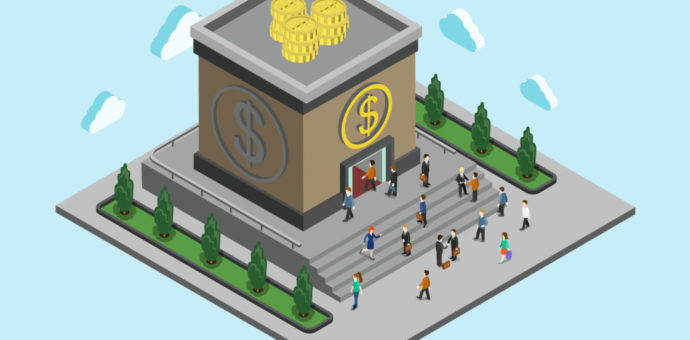In early May, Monetary Authority of Sinagapure (MAS) and the Central Bank of Canada (BoC) have performed trials for international payments using blockchain and digital currencies. According to the Coindesk, apparently this is the first blockchain experiment at two central banks. The expectation is that there is great potential to increase the efficiency and reduce the risks of cross-border payments. But they’re not the first ones to perform those tests. See other central banks that are trying out the blockchain:
- The Central Bank of Iran develops blockchain platform
- The Dutch Central Bank has tested the blockchain for three years
- India’s Central Bank wants blockchain to compete with the bitcoin
- Bank of Thailand develops a blockchain
- Central Bank of China will have a blockchain in 20 years
- Spain’s Central Bank see criptocoins positively
The Central Bank of Iran develops blockchain platform

The Central Bank of Iran has been developing a platform called Borna. The goal is to provide a common standard for the use of blockchain and reduce the cost of solutions development using the technology. Thus, Iranian banks and other financial institutions can test and implement the blockchain in a wider range.
The Dutch Central Bank has tested the blockchain for three years
The Dutch Central Bank has developed and evaluated four prototypes of the DLT Technology in three years. After the tests, only the international payments were enabled, but they come to the conclusion that countries with efficient payment systems would not benefit as much from the blockchain.

India’s Central Bank wants blockchain to compete with the bitcoin

The National Payment Corporation of India (NPCI), plans to develop a blockchain to improve their payment network. The national body received support from ten banks in India. In other words, the NPCI expects to create an alternative blockchain that would compete with the original blockchain of the bitcoin. But they would do it without offering any incentive, as they would have central control over validation and blocks addition.
Bank of Thailand develops a blockchain

The Bank of Thailand, the country´s Central Bank, has made progress in its digital currency project based in blockchain. The solution will allow the central bank to settle interbank transactions using a digital currency among its eight commercial partners banks.
Central Bank of China will have a blockchain in 20 years

The President of the Blockchain Research Institute, Don Tapscott, anticipates that the central bank of China will have a decentralized digital currency in 20 years. During an interview to Bloomberg Technology, Tapscott mentioned that the Chinese recognize the crypto technology as an important technology to China. Therefore, China will soon have a representative among the central banks that are trying out the blockchain.
Spain’s Central Bank see criptocoins positively

Spain’s Central Bank believes that the adoption of criptocoins as fiat currency can bring benefits to the economy. This is the conclusion of the report published in July of this year, in which positive and negative aspects of the subject are reviewed. One of the main arguments in favor is the ease of monitoring the money in circulation.







